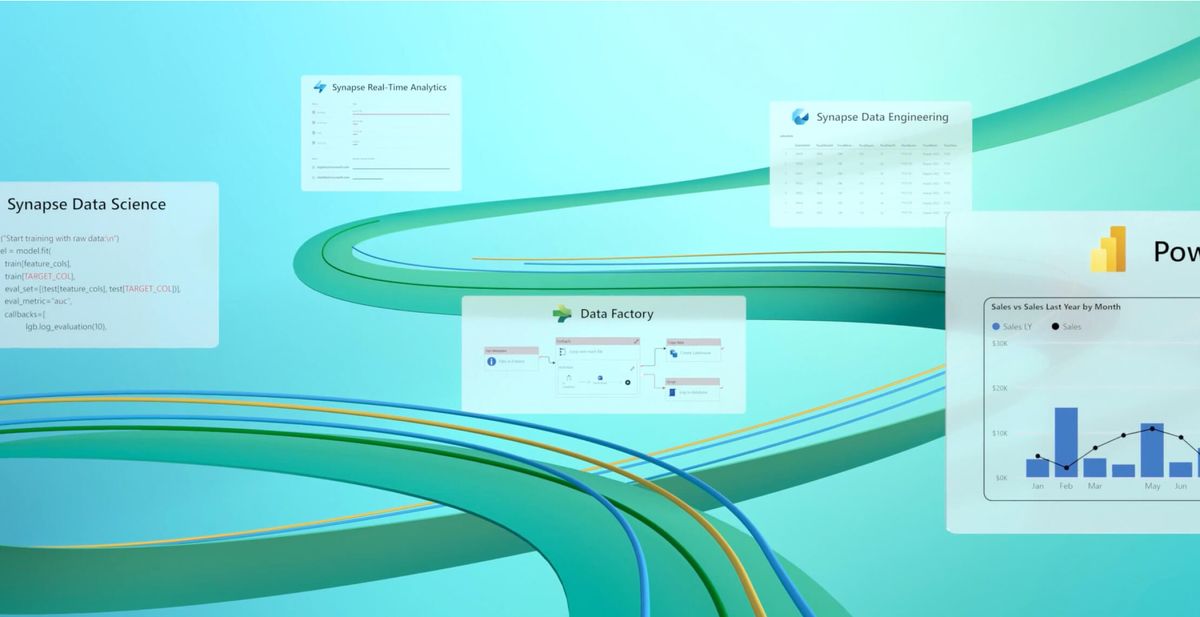
At the HLTH 2023 conference, Microsoft today announced the launch of new healthcare-focused data analytics and AI capabilities aimed at helping healthcare organizations derive more value from their data to improve patient care and clinician experiences. These new offerings build on Microsoft's Cloud for Healthcare platform and represent significant advances in harnessing data and AI in impactful ways across the healthcare ecosystem.
A major component of Microsoft's announcement centers on new healthcare-specific data solutions in their Microsoft Fabric platform. Fabric provides a unified analytics framework to break down data siloes and perform multimodal analytics across structured, unstructured, imaging, and device data.
The healthcare data solutions facilitate aggregating such disparate sources as EHRs, medical images, lab results, and more into a single data lake. Standard interfaces like FHIR and DICOM enable easier pipeline building while a new de-identification service leverages machine learning to anonymize sensitive health data for secondary uses like research.
Early adopters plan to use Fabric to accelerate clinical and operational insights. For instance, Northwestern Medicine aims to integrate multi-source data to meet regulatory mandates and inform care quality. The Ontario Workers Network seeks to power predictive models that connect workers to timely, high-quality care.
Complementing the data unification abilities, Microsoft also announced new AI services to help clinicians and healthcare organizations harness advanced analytics. These include:
- Azure AI Health Insights - Extracts insights from unstructured data via models like a patient timeline generator and report simplifier to explain complex information to patients more easily.
- Azure AI Health Bot - Provides customizable, AI-powered conversational assistance to augment workflows.
- Text Analytics for Health - Automatically processes unstructured medical text to identify key clinical entities and relationships.
Moreover, Microsoft has placed a clear emphasis on patient confidentiality with its de-identification service. By employing machine learning, this service can efficiently sanitize clinical and personal health data, ensuring patient privacy while medical documents are analyzed.
Delving deeper into the generative AI solutions Microsoft is offering through Azure AI, the introduction of three new models stands out:
- Patient Timeline: Addressing the challenge of fragmented and unstructured patient data, the Patient Timeline model employs generative AI to extract key medical events from various data sources. By organizing these events chronologically, clinicians can gain an accurate view of a patient’s medical journey, thereby aiding in more informed care planning.
- Clinical Report Simplification: Navigating medical jargon can be daunting, even for professionals. This model employs generative AI to convert complex medical terminology into simpler language, while retaining the core essence of the clinical data. By simplifying such reports, clinicians can communicate more effectively with patients, ensuring that they are well-informed and actively involved in their care.
- Radiology Insights: Radiology, a critical facet of modern healthcare, generates a vast amount of data. The Radiology Insights model aims to streamline this data by providing quality checks, highlighting inconsistencies, and suggesting follow-up actions. It can extract crucial findings from clinical documentation, offering value not just to radiologists but to the entire care team.
An example application of AI-enablement is the new Dragon Ambient eXperience (DAX) Copilot that uses ambient listening and natural language processing to automatically generate clinical visit notes for provider review. This could save significant documentation overhead time and help reduce clinician burnout.
At its core, Microsoft's healthcare data and AI launch aims to solve pressing challenges around fragmented data and overburdened staff through responsible, ethical applications of leading-edge technologies. By unifying data and amplifying insights with AI, the solutions seek to enhance clinical care, research, administration, and patient engagement.
Dr. David Rhew, M.D., the Global Chief Medical Officer and Vice President of Healthcare at Microsoft, envisions a future where these technologies not only alleviate clinicians' workloads but also enhance the overall patient experience. With tools that provide timely and meaningful insights, patient care can be transformed, leading to better outcomes and fostering a more collaborative patient-doctor relationship.
The ability to unify multimodal data and tap AI to generate new insights paves the way for improved experiences and outcomes. By bridging data gaps, simplifying complex terminologies, and bringing automation to clinical documentation, they are not just addressing current challenges but paving the way for a future where data-driven insights are at the heart of patient care. Still, success will require healthcare organizations to carefully evaluate use cases against responsible AI principles to ensure high-quality, unbiased systems that patients and clinicians can trust.

